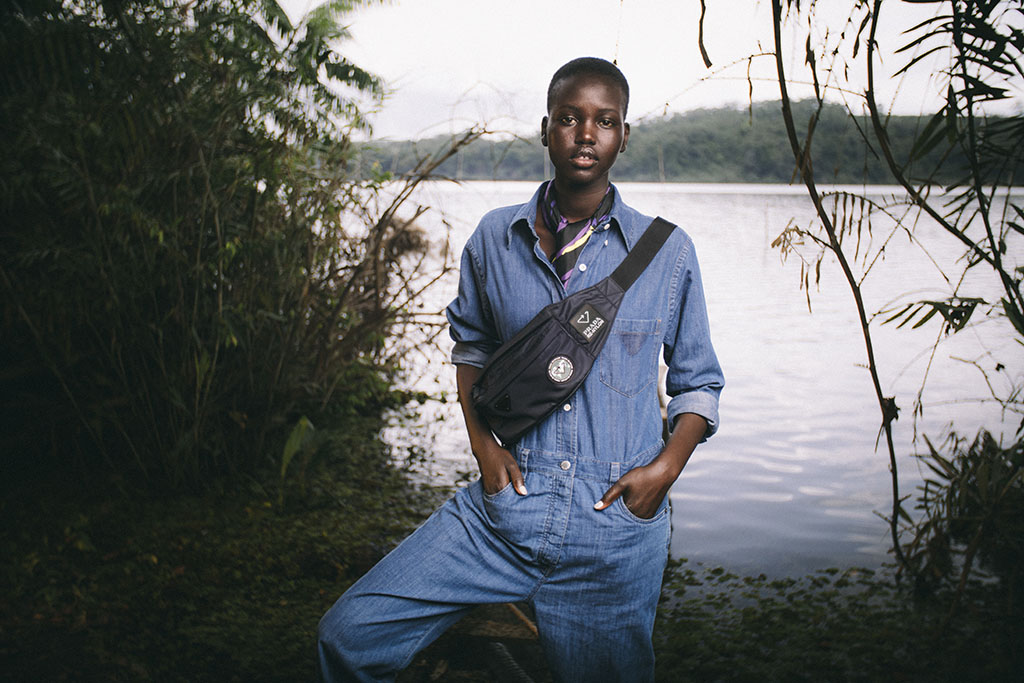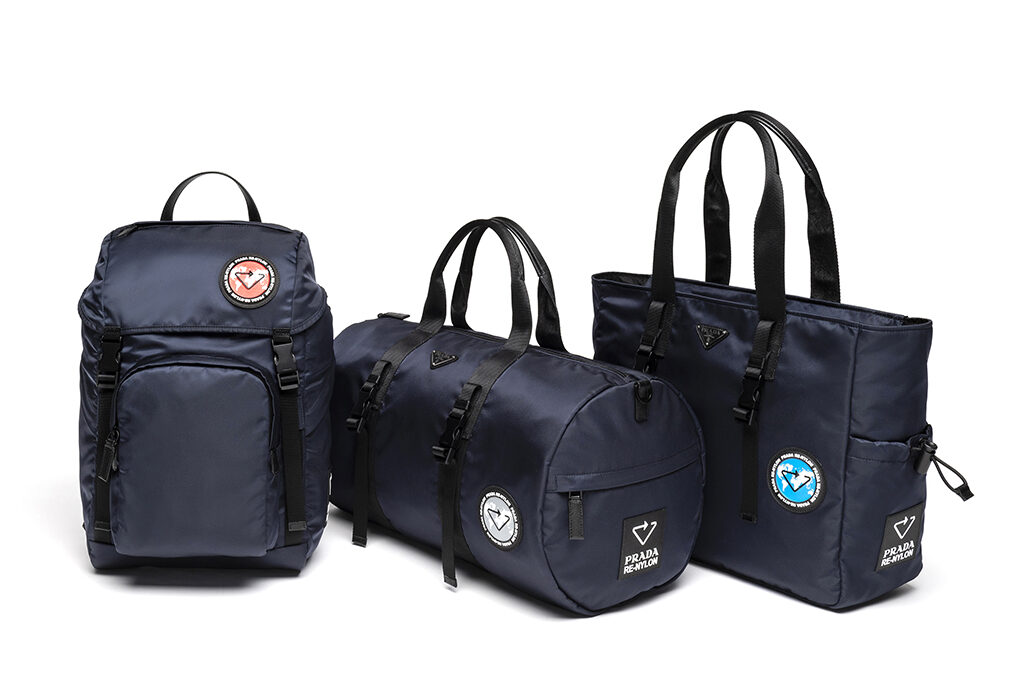Every year a staggering 640,000 tons of nylon fishing nets are abandoned in our oceans and freshwater lakes. Known as “ghost gear” this waste material is responsible for the death of animals that get caught up in it, the destruction of plant life, corals and kelp, and in places like Lake Ossa in Cameroon, Central Africa, it directly impacts local communities by polluting the water and affecting fishing success rates – resulting in less available food sources.

Sudanese-Australian model Adut Akech Bior, a former refugee, photographed in Cameroon wearing a Prada bumbag made from recycled nylon from discarded fishing nets
Sudanese-Australian model Adut Akech Bior travelled to Cameroon to host episode two of Prada’s docu-series What We Carry. The five-part series, produced by National Geographic, marks the launch of the brand’s first-ever eco-friendly accessories line.
Hosted by a different activist every episode, the series highlights the global issue surrounding nylon waste, uncovering how it impacts communities and revealing innovative solutions, all the while explaining how Prada is doing its part in tackling the issue through its Re-Nylon sustainability initiative that aims to only use recycled nylon in its products by 2021.
Nylon has been an integral part of Prada’s accessories line since the 1980s, and in a move to join the likes of Gucci and Stella McCartney in the use of green materials, the house is upping its sustainability drive with the debut of six accessories made from Econyl, a regenerated nylon fibre derived from recycled fishing nets.

Three pieces from the Prada Re-Nylon accessories collection made from Econyl recycled nylon
Episode two of What We Carry (seen above) shows Adut and National Geographic explorer and freshwater conservationist Joe Cutler talking to the local community in Lake Ossa about the impact the discarded nylon fishing nets has on them day-to-day, and how the creation of Econyl is providing them with a second income.
Aquafil, the producer of Econyl, says for every 10,000 tons of Econyl produced 70,000 barrels of crude oil are saved and 57,100 tonnes of C02 emissions are avoided. Prada is said to use 700,000 metres of nylon a year.
Speaking about the Prada Re-Nylon project, Lorenzo Bertelli, head of marketing and communication at Prada Group told Business of Fashion it’s an exciting new era for the brand that means “a massive reduction of nylon and a big impact in terms of sustainability.”
Prada Re-Nylon is available worldwide and online
EDUCATE YOURSELF AT THE BELOW SITES:
Prada Re-Nylon
Econyl.com
Net-Works




